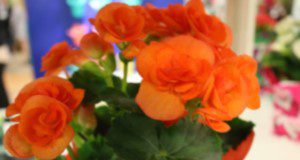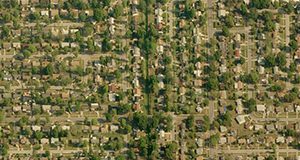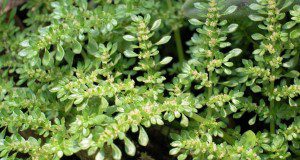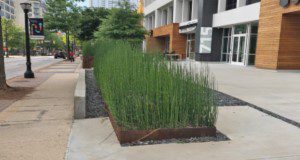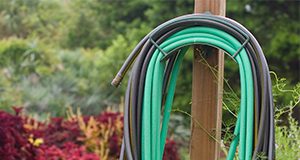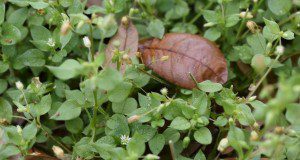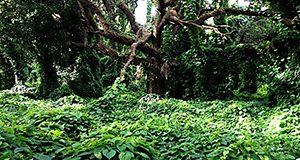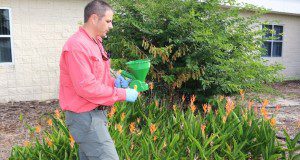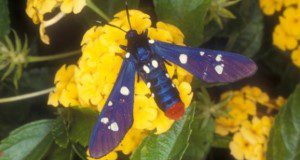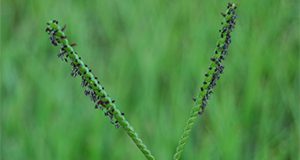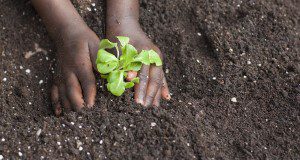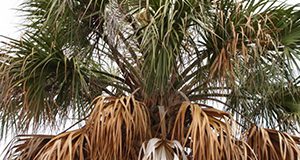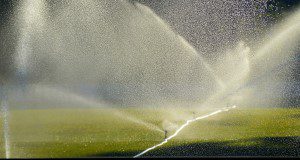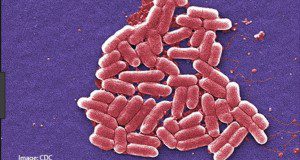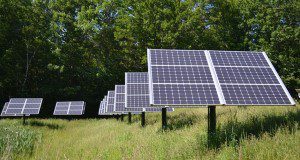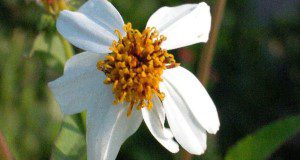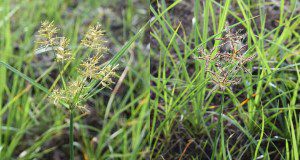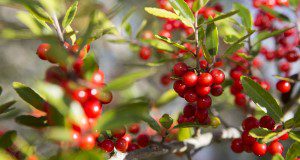Begonias are known by their bright, full flowers and also their leaves, which vary to showcase patterns, designs or color. They are often used as hanging baskets, flowerpots, and garden beds, as well as in the landscape. This new 5-page publication of the UF/IFAS Environmental Horticulture Department is intended for Florida gardeners and horticulturalists hoping to learn more about the different classifications of begonias as well as those interested in learning more about this potential landscape or houseplant. Written by Julian Ginori, Heqiang Huo, and Caroline R. Warwick.
https://edis.ifas.ufl.edu/ep581
Category: Lawn & Garden
Residential Irrigation Water Costs in Osceola County and Orange County, Florida
Interest in understanding water use and irrigation costs has risen in recent years. This case study is a 5-page evaluation of water use and associated costs for residential landscape irrigation in Osceola County and Orange County, Florida. Homeowners in central Florida can use the results to assess their water consumption and bills in relation to similar homes in the area. Written by Nick Taylor, Tricia Kyzar, Pierce Jones, and Kaitlin O. Robb Price, and published by the UF/IFAS Department of Agricultural and Biological Engineering, December 2019.
https://edis.ifas.ufl.edu/ae536
Use of Glyphosate and Herbicide Alternatives for Weed Control in Florida Landscape Planting Beds
This new 10-page article is written for landscape professionals and those maintaining landscape areas to guide them in selecting alternatives to glyphosate (the active ingredient in RoundUp®) for postemergence weed control in Florida. Information is also included on preemergence herbicides and integrated weed management (use of chemical and non-chemical controls), which should be the basis of a weed management program. Written by Chris Marble, Joe Neal, and Andy Senesac, and published by the UF/IFAS Environmental Horticulture Department.
https://edis.ifas.ufl.edu/ep580
Considerations for Selection and Use of Ornamental Grasses
Ornamental grasses create interest and excitement in the landscape with their unique characteristics. The availability of a large number of species and cultivars makes these plants very versatile, with many potential uses in the landscape. This publication outlines many of the considerations for the proper selection and use of ornamental grasses. The information and tables should assist the first-time gardener as well as the experienced landscaper in the selection and use of ornamental grasses in Florida. This 9-page major revision was written by Mack Thetford and Mary Salinas and published by the UF/IFAS Environmental Horticulture Department.
https://edis.ifas.ufl.edu/ep233
Valuing Florida Water Resources: Households’ Willingness to Pay for Water
This 8-page fact sheet written by Tatiana Borisova, Fei He, Xiang Bi, Kelly Grogan, Tara Wade, and Syed Shah and published by the UF/IFAS Food and Resource Economics Department reviews various methods of examining the value of water availability for household needs. It may be helpful to water resource managers planning investments in water infrastructure to prepare for droughts as well as for analyzing spending on protecting source water availability, for example, by protection of aquifers or increasing the recharge of aquifers, the primary water source in Florida.
http://edis.ifas.ufl.edu/fe1068
Biology and Management of Common Chickweed (Stellaria media) in Ornamental Crop Production
Chickweed is a common cool-season annual weed in Florida landscapes, container nurseries, home gardens, and other agricultural production systems. This new 5-page article is written for green industry professionals and others to aid in the identification and management of chickweed in and around ornamental plants. Written by Yuvraj Khamare, Chris Marble, Nathan Boyd, and Shawn Steed and published by the UF/IFAS Environmental Horticulture Department.
https://edis.ifas.ufl.edu/ep577
Lost in the Weeds?: A Comprehensive Guide to Florida's Many Non-Native Plant Lists
Because researchers and land managers in Florida have been dealing with invasive species for decades, there is an abundance of resources available to the public regarding invasive species. Sometimes, the volume of available information can be confusing. This 6-page document aims to inform the general public, land managers, researchers, local and state policy makers, and others who seek guidance in accessing regulatory and nonregulatory non-native plant lists in the state of Florida. This publication explains the origins of the lists, meaning of inclusion on a particular list, and ways to access each of the lists. Written by Deah Lieurance and Lyn A. Gettys, and published by the UF/IFAS Agronomy Department, August 2019.
http://edis.ifas.ufl.edu/ag436
Florida Homeowner Herbicide Guide: Considerations, Applications, and Selection
While some people opt for professional lawn maintenance companies, some homeowners may wish to perform their own landscape pest control in order to save money, to have more control of what is applied, or simply because they enjoy it. This EDIS publication is for Florida gardeners, horticulturalists and homeowners who want to utilize herbicides to control weeds in their landscape. This new 9-page publication of the UF/IFAS Environmental Horticulture Department discusses common herbicides available at retail stores and how homeowners can use these them safely and effectively. Written by Chris Marble.
https://edis.ifas.ufl.edu/ep575
Key Plant, Key Pests: Oleander (Nerium oleander)
This series of Key Plant, Key Pests publications are designed for Florida gardeners, horticulturalists, and landscape professionals to help identify common pests associated with common Florida flora. This new 5-page publication, the tenth in the series, helps identify the most common pests found on oleander. This publication provides information and general management recommendations for oleander aphids, oleander caterpillars, sphaerosis gall, oleander leaf scorch, and scale. Written by Juanita Popenoe, Jacqueline Bourdon, Caroline R. Warwick, and Jianjun Chen, and published by the UF/IFAS Environmental Horticulture Department.
https://edis.ifas.ufl.edu/ep574
Bahiagrass (Paspalum notatum Flueggé): Overview and Pasture Management
This 10-page document discusses bahiagrass forage cultivars, forage production, nutritive value, animal performance, planting, pasture renovation, management, and more. Written by Marcelo Wallau, Joao Vendramini, José Dubeux, and Ann Blount, and published by the UF/IFAS Agronomy Department, revised July 2019.
http://edis.ifas.ufl.edu/ag342
Soils and Fertilizers for Master Gardeners: Soil Physical Characteristics
Soils are a foundational component of the landscape, providing a medium for plant root growth and playing a crucial role in nutrient cycling and water movement across the landscape. This new 7-page article describes the physical properties of soils, including soil formation in Florida, the soil profile, and water dynamics within soils, and provides a thorough reference for Master Gardeners and other individuals searching for a basic understanding of soil dynamics to apply to residential landscapes. Written by Amy L. Shober, Alexander J. Reisinger, Mary G. Lusk, and Sally Ann Scalera and published by the UF/IFAS Department of Soil and Water Sciences.
https://edis.ifas.ufl.edu/mg458
Managing Plant Pests with Soaps
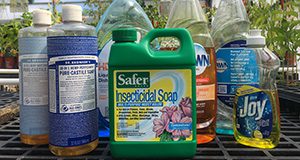
Home gardeners and professionals frequently discuss the use of soap products to control plant pests. Limited and conflicting information on this topic has resulted in confusion and misuse of products. It is important to recognize that all soaps are not equal in safety or efficacy in plant-pest management. This 5-page fact sheet written by Matthew A. Borden and Adam G. Dale and published by the UF/IFAS Entomology and Nematology Department describes some of the different types of soaps and recommendations for proper, legal, and safe use of these products to manage pests.
http://edis.ifas.ufl.edu/in1248
Lethal Bronzing Disease (LBD)
Lethal bronzing disease (LBD), formerly Texas Phoenix Palm Decline (TPPD), is a lethal phytoplasma infection of various palm species in the state of Florida. It was first detected in Florida in 2006 and has since spread to 31 different counties and been isolated from 16 different species of palm. This three-page fact sheet describes the pathogen and hosts of LBD, its symptoms, how to diagnose it, and disease management practices. Written by Brian W. Bahder and Ericka Helmick and published by the UF/IFAS Plant Pathology Department, this article is a revision of an earlier fact sheet by Nigel A. Harrison and Monica L. Elliott.
https://edis.ifas.ufl.edu/pp163
Exploring Relationships among Social Norms, Aesthetics, HOA Regulations and Water Conservation
In the United States, landscape irrigation often consumes 50% or more of residential water used, and aesthetics may take preference over water-conserving elements in the landscape. Other factors such as perceived social norms and homeowners' association (HOA) regulations also impact water conservation behaviors. Binary logistic regression estimated the impact of aesthetics, perceived social norms, and HOA regulations on water conservation intentions. Findings revealed that when individuals placed a higher-than-average value on aesthetics and perceived stronger social support for conservation, home irrigation users had greater intent to conserve water. This new 4-page publication of the UF/IFAS Department of Agricultural Education and Communication was written by Amanda D. Ali and Laura A. Sanagorski Warner.
http://edis.ifas.ufl.edu/wc331
The Importance of Soil Health in Residential Landscapes
This 6-page publication’s purpose is to educate master gardeners and homeowners about the principles of soil health as well as practices that harm or nurture soil health at the residential scale. It also includes a description of the soil food web and the microorganisms that comprise it. This new publication of the UF/IFAS Department of Soil and Water Sciences was written by Sally Scalera, Alexander J. Reisinger, and Mary Lusk.
http://edis.ifas.ufl.edu/ss664
Green Power in the Garden: A Simple Water Feature Using Photovoltaic Solar Panels
In this new 4-page publication from the Environmental Horticulture Department, Edmund Lee Thralls presents a basic method of how to construct a solar-powered water feature in your garden.
http://edis.ifas.ufl.edu/ep571
Biology and Management of Spanish Needles (Bidens spp.) in Ornamental Crop Production
All eight species of Bidens in Florida are commonly referred to as Spanish needles or beggar-ticks. This document focuses on Bidens alba and B. pilosa, which are common weeds in container nurseries and landscapes in Florida. This 6-page EDIS publication, written by Yuvraj Khamare, Chris Marble, Shawn Steed, and Nathan Boyd and published by the UF/IFAS Environmental Horticulture Department, is designed for landowners, gardeners, horticulturalists, and consumers hoping to learn more about Spanish needle classification and management.
http://edis.ifas.ufl.edu/ep572
Biology and Management of Yellow (Cyperus escuelentus) and Purple Nutsedge (C. rotundus) in Ornamental Crop Production and Landscapes
This new six-page document provides insight on characteristics and management techniques for both yellow and purple nutsedge, prevalent and persistent weeds in Florida. Written by Debalina Saha, Chris Marble, Nathan Boyd, and Shawn Steed and published by the UF/IFAS Environmental Horticulture Department, March 2019.
http://edis.ifas.ufl.edu/ep569
Key Plant, Key Pests: Holly (Ilex sp.)
This series of Key Plant, Key Pests publications are designed for Florida gardeners, horticulturalists, and landscape professionals to help identify common pests associated with common Florida flora. This publication, the eighth in the Key Plant, Key Pests series, helps identify the most common pests found on Holly (Ilex sp.). This publication provides information and general management recommendations for Florida wax scale, tea scale, Cylindrocladium leaf spot, dieback, Sphaeropsis gall, root knot nematodes, and magnesium deficiency. This five-page document was written by Juanita Popenoe, Caroline R. Warwick, Jacqueline Bourdon, and Liz Felter and published by the UF/IFAS Department of Environmental Horticulture.
http://edis.ifas.ufl.edu/ep566
News: UF/IFAS Turfgrass Specialist Bryan Unruh Gets International Extension Award
EDIS author Bryan Unruh is being recognized for his outreach and Extension efforts. He will be honored with the Turfgrass Educator Award of Excellence at the International Education Conference of Turfgrass Producers International on Feb. 19, in Charlotte, North Carolina. Congratulations, Dr. Unruh!
For more information, see the UF/IFAS Press release
